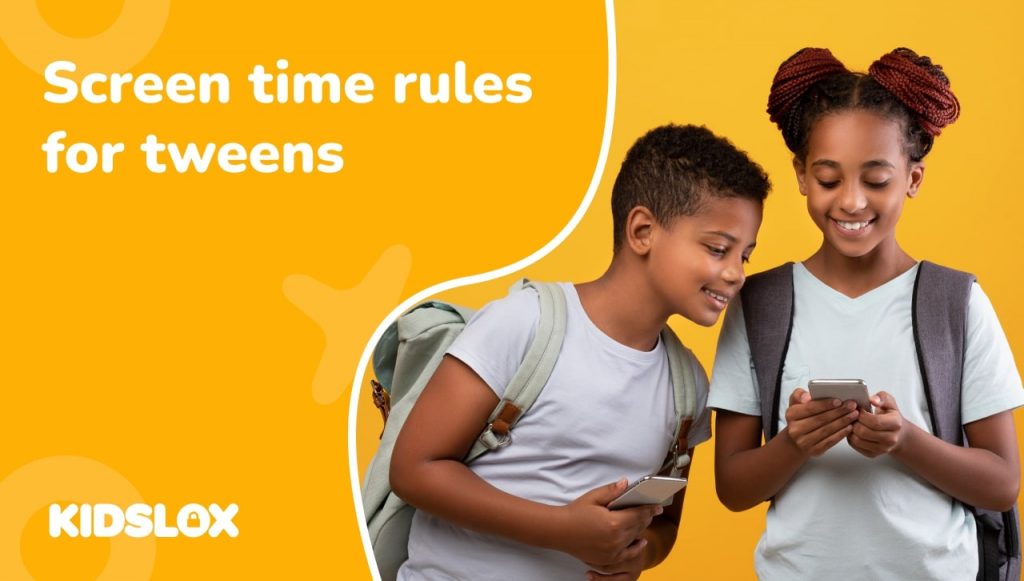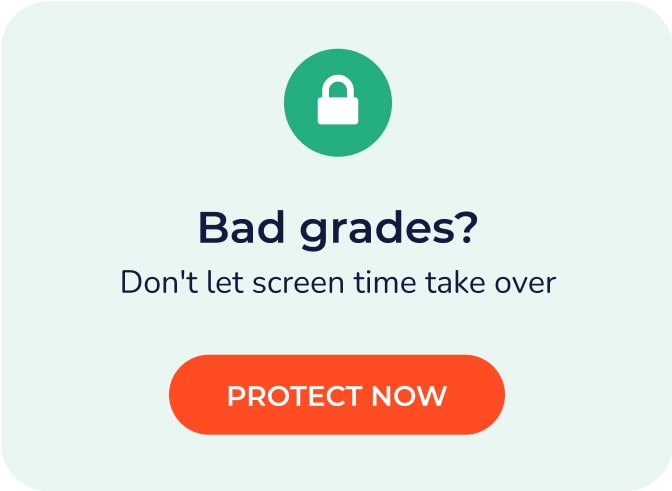How to create cell phone rules for your 11-12 year old
If you’re thinking about getting a cell phone for your ‘tweenager’ (11 to 12 year old), you’re not the only one. According to data from Stanford University, almost a quarter of US children own a cell phone by age 11. That stat jumps up dramatically to two-thirds by the age of 12 and a half.
For many parents, Middle School is a pivotal transition period for many families to introduce a cell phone into their children’s lives. With increased independence at this stage of a child’s development and schooling, they may also be venturing further from home, finding new friendships and preparing for their teenage years.
When you buy your child their first cell phone is a personal decision that you need to make for your family. Most children will want, and petition for one(!), and while they have a lot of practical purposes, especially if your child is exploring their independence, there are negatives to consider.
While these devices are designed to improve our lives, they can also invite a host of problems if used unmonitored. To find the right balance and guide your child in the world of modern technologies, we’ve pulled together a list of simple cell phone rules appropriate for 11-12-year-olds and ideas for you to introduce more technology to your family with ease.
What should you consider before buying a phone for your tweenager?
Before you bite the bullet and buy the device, consider the following factors first:
Your budget: Cell phones vary in cost, from a simple handset to the latest iPhone. You need to consider how much you want to spend, and the price to replace the cell phone or fix it if your child loses or damages it.
Your child’s maturity: How responsible is your child? Can you trust them to look after their cell phone properly? Will they keep it in good working order and charged when it needs to be? Will your child put it away in school or could it become a distraction. Parents should consider their child’s personality and track record of behavior when making a decision about getting them a cell phone.
Monthly charges: The cost of the device doesn’t just stop at the purchase, there are ongoing data and and contract charges to consider as well as in-app purchases that can crop up in games and other platforms. Make sure your child knows the limits they have to spend each month and that you’re prepared to keep a close eye on what they’re spending.
Your boundaries: Giving your child a cell phone opens them up to more dangers. From inappropriate content such as pornography and the risk of predators using social media to chat to your children, you need to be prepared to set firm limits on what your child has access to.
Screen time limits: Phones are addictive, even for adults. At the ages of 11 and 12, it’s extremely difficult for a child to be able to self-regulate their screen time use. Firm limits are really important. Be prepared to create a tight schedule with your child and to enforce it too.
Digital literacy: How savvy is your child when it comes to protecting themselves from harm online? Ensuring your child understands the right and wrong ways to conduct themselves in the social media space is so important before handing over a cell phone to them.
Your own habits: Be honest with yourself – are you a good role model for your kids when it comes to screen time and your cell phone habits? When bringing a phone into the family dynamic you need to be prepared to assess your own behaviors so that your child doesn’t feel that it’s acceptable to break the rules because they see you doing so.
What rules should I put in place for my 11 – 12 year old and their phone?
Your child’s first phone is a big responsibility, so it’s important to set out the rules upfront. By involving your child in agreeing some of the limits, you’re more likely to have their cooperation when it comes to following the rules…here are some ideas to get you started:
1. Set up a screen time plan
The American Association of Pediatrics (AAP) estimates that today’s children are spending up to 7 hours a day in front of a screen. Access to technology is everywhere, and that’s why the AAP recommends parents set up a family media plan and has a handy tool to help you devise one that works well for your family.
2. Display it in the home
Once you have agreed your media plan and cell phone rules for your 11 to 12 year old, make sure you put it somewhere in the home where everyone can see it, be reminded of the rules and to be able to refer to it in the event of any disputes!
3. Have cell phone free times and zones
One clear cut way of limiting screen time and stopping it from becoming an issue in your family dynamic is to have cell phone free times and zones in your home. This can be dinner, the family room, bedrooms and 30 minutes or so before bedtime.
4. Agree what happens if it breaks
Cell phones are delicate, and children don’t always understand the value of possessions or the consequences of what will happen if they break one. Ensure that this is clear with them upfront. Any breakages will need to be paid for, at least in part, from pocket money and a loss of the phone or severe damage will result in time without the device, or a much cheaper replacement.
5. Have your red lines
Be sure to be very clear what the consequences are if the rules are broken. If your child does things outside of the plan, deliberately tries to access banned content or uses the cell phone for anything nefarious such as cyberbullying, then their privileges will be revoked.
6. Set your budgets
Children usually don’t understand that runaway data costs money. Don’t be surprised if your credit card will be charged for purchasing games, to say nothing of bills for conversations, texting, and mobile data. Be clear with your child on what the limits are and be sure to check in with them regularly. It’s a good way to teach them budgeting in a practical sense too.
7. Use parental controls
At the ages of 11-12 children still require supervision. Using parental controls ensures that you can monitor their behavior, block harmful and inappropriate sites and content, monitor their location and enforce your cell phone rules with additional technology and support.
Hit the link above to start your free trial of Kidslox today!







